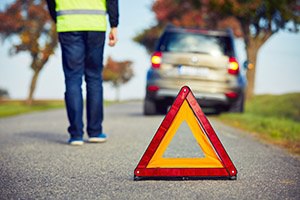How to Start and Grow an Emergency Fund
October 22nd, 2015 | 2 min. read

 By Sean K. McDonnell, CFP®, NSSA®
By Sean K. McDonnell, CFP®, NSSA®
Life is unpredictable, which is why our finances often are too. Expenses can change from month to month while income is not always guaranteed. Then there are the unexpected events that seem to always happen at the wrong time.
The cost of unexpected events can significantly derail your financial life. One survey found that unexpected events cost $117,000 on average for people 50 to 70 years of age. They become even more expensive when you are financially unprepared. You might resort to racking up credit card debt, taking out a loan or even raiding your retirement accounts, all of which exacerbate the cost and prolong the time to recover.
The solution is an emergency fund, where cash is set aside for unpredictable financial needs. Your vehicle, for example, has various expenses including maintenance, which should be built into your budget. A major accident or breakdown, on the other hand, is not something you plan. With an emergency fund, however, you’ll be financially prepared.
How much should you save in an emergency fund?
A good rule of thumb is to save a minimum of one month’s expenses, but most people will need two to six months. The optimal amount you should have in your emergency fund depends on a number of personal details such as your career and income.
If you and your spouse have solid careers at strong companies within stable industries, your need is likely small. If you’re the sole breadwinner, working in a shifting field at a company with a history of layoffs, you should have a considerable amount saved. Retirees who rely on their portfolios for income, which is a limited source that can be unstable at times, should also build a sizable fund. It can help for emergencies as well as support their daily needs if markets suffer a substantial downturn, giving their portfolios time to recover.
Should you save or pay down debt first?
For some, building an emergency fund is more important than paying off high-interest debt. That’s because those with maxed-out credit cards have nowhere else to turn, so cash is a necessity. If you find yourself in this situation, build up your one-month fund and then tackle high-interest consumer debt. Once you have bad debt out of the way, you can continue to build your emergency fund and put yourself on a firmer financial footing.
Where should you put an emergency fund?
An emergency fund should be segregated from your regular cash accounts such as your checking account. A savings or money market account is an ideal spot – somewhere accessible but “forgotten” to avoid temptation. Some credit unions will even help you setup a special account just for this purpose. Your employer may also allow you to automatically deduct a certain amount from each paycheck to be deposited into a separate account.
If you choose to use a certificate of deposit (CD) or money market account, don’t be turned off by low interest rates. The purpose of this account is to have liquid savings with low market risk. You don’t want short-term market losses to get in the way of paying off an emergency expense.
You can, however, earn a little more off of your emergency fund by “laddering” CDs. Every three months, buy a 12-month CD until you have four CDs, one of which matures each quarter. Set each one to automatically renew. Then, when you need cash, liquidate the one that was most recently renewed so you won’t miss out on much interest.
Too much of a good thing
Holding too much cash in your investment portfolio can actually cost you. Since cash earns very little, if any, interest, too much can affect the growth of your portfolio and reduce your buying power due to inflation. Based on the historical rate of inflation, your money should earn at least 3% just to maintain its buying power. So be sure to monitor your total level of cash across all of your accounts on a regular basis. If you’re working with a financial adviser, ask him or her to review your cash amount to make sure it’s reasonable for your needs.
One thing we know for certain is that emergencies happen when least expected and they come with a price. That’s why it is better to expect the best, but prepare for the worst.
As a financial adviser, Sean works closely with his clients to create and implement an appropriate financial plan. He provides a wide range of services, including investment portfolio and 401(k) advice as well as retirement planning and tax planning. He is a CERTIFIED FINANCIAL PLANNER™ professional.
